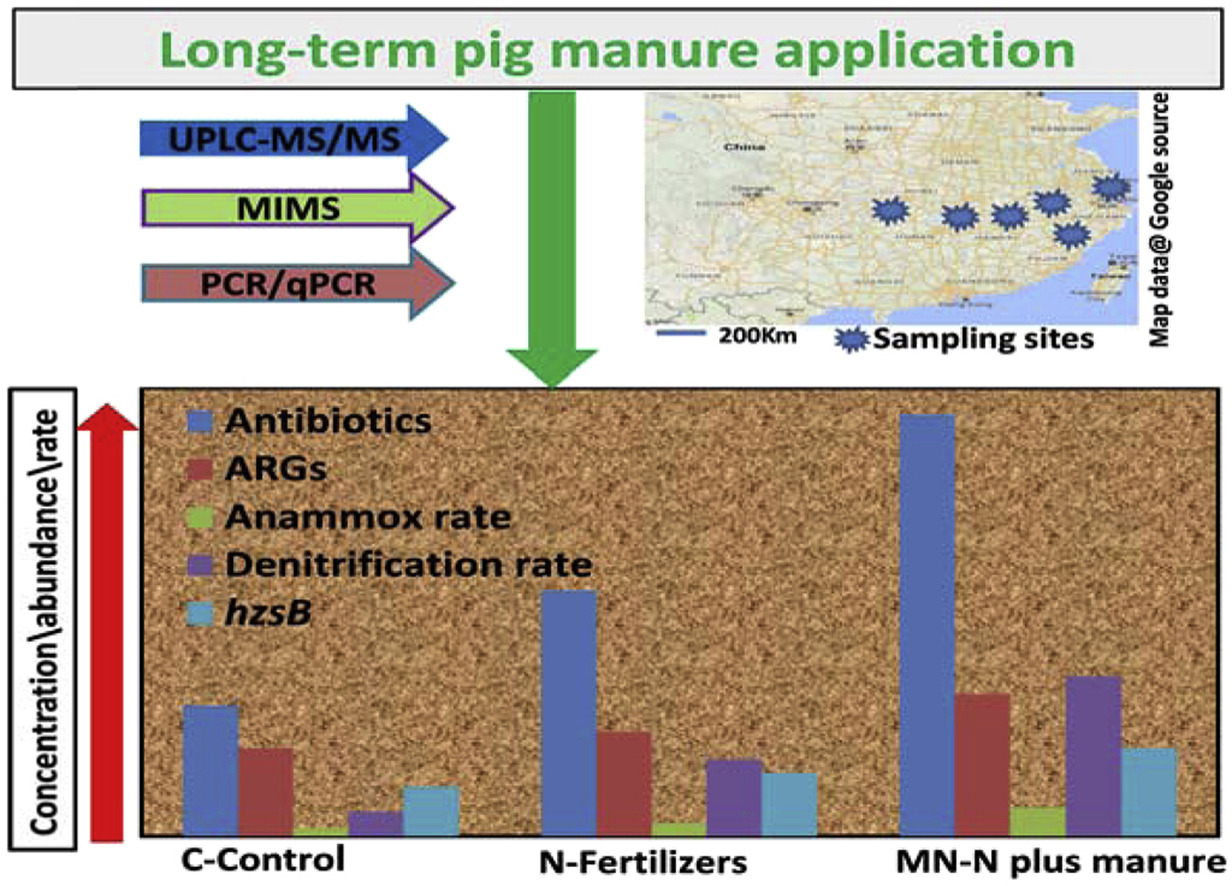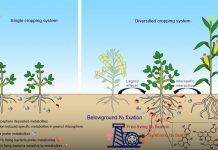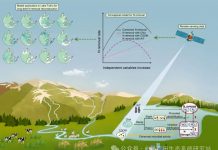M.M. Rahman, Shan J, Yang PP, Shang XX, Xia YQ, Yan XY. Effects of long-term pig manure application on antibiotics, abundance of antibiotic resistance genes (ARGs), anammox and denitrification rates in paddy soils. Environmental Pollution, 2018, 240: 368-377
Abstract
Previous studies of long-term manure applications in paddy soil mostly focused on the effects on denitrification, occurrence of antibiotics and antibiotic resistance genes (ARGs) without considering the effects on anaerobic ammonium oxidation (anammox). Here, we investigated the potential rates of anammox and denitrification, occurrence of antibiotics and AGRs in response to three fertilization regimes (C, no fertilizer; N, mineral fertilizer; and NM, N plus pig manure) in six long-term paddy experiment sites across China. The potential rates of anammox (0.11–3.64 nmol N g−1 h−1) and denitrification (1.5–29.05 nmol N g−1 h−1) were correlated with the abundance of anammox genes (hzsB) and denitrification functional genes (narG, nirK, nirS and nosZ), respectively. The anammox and denitrification rates were affected by soil organic carbon (SOC) and significantly (p < 0.05) increased in NM treatments relative to those in N treatments. Although pig manure application increased antibiotic concentrations and abundance of ARGs compared with N treatments, the increased antibiotics did not directly affect the anammox and denitrification rates. Our results suggested that long-term pig manure application significantly increased antibiotic concentrations, abundance of ARGs, and rates of anammox and denitrification, and that the effects of pig manure-derived antibiotics on anammox and denitrification were marginal. This is the first report that investigates the effects of long-term pig manure application on anammox in paddy soils. More attention should be paid to the potential ecological risk of increased ARGs caused by pig manure application in paddy soils.








